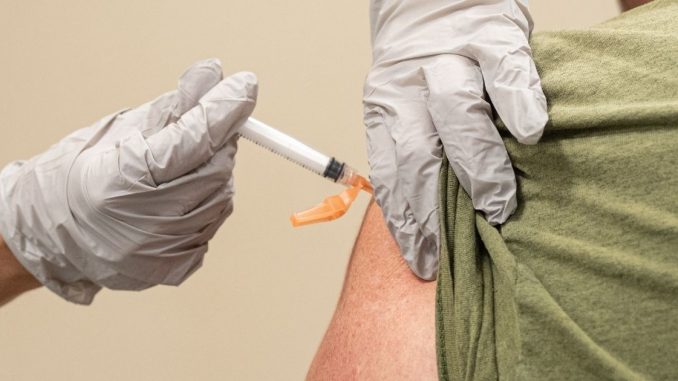
As if a day with 166,284 news coronavirus cases and 2,678 deaths from COVID-19 were not bad enough, a report has now emerged that the protection offered by one of the major vaccines used in the United States declines quickly.
“The first six months are great, but you can’t count on that being stable out to a year and beyond,” Moderna President Stephen Hoge said on a conference call with investors, according to Reuters.
Moderna said in a news release that there was a 36 percentage point difference in the rate of breakthrough infections between those who were vaccinated roughly 13 months ago and those vaccinated roughly eight months ago.
“The increased risk of breakthrough in this analysis quantifies the impact of waning immunity,” Moderna said, adding that the falloff in protection comes “between the median follow-up time of 8 months and 13 months since first dose. The Company believes this adds to evidence of potential benefit of a booster dose.”
“Manuscripts summarizing both findings have been posted to preprint servers and will be submitted for peer-reviewed publication,” the company said.
That means that the results and study methods used by the company to support the need for a booster shot have not yet been subjected to intense scrutiny.
Looking at the numbers, there were 88 cases of infection in people vaccinated more recently, (a rate of 49 cases per 1,000 people tested) and 162 infections in those who were immunized less recently (a rate of 77.1 cases per 1,000 people).
A separate study published in the journal Nature Medicine noted a significant drop in protection at roughly six months after vaccination.
“This is only one estimate, but we do believe this means as you look toward the fall and winter, at minimum we expect the estimated impact of waning immunity would be 600,000 additional cases of COVID-19,” Hoge said on the call.
He added that a booster will increase protection levels above those experienced after the second dose of the vaccine.
“We believe this will reduce COVID-19 cases,” he said. “We also believe that a third dose of mRNA-1273 has a chance of significantly extending immunity throughout much of next year as we attempt to end the pandemic.”
“We’ve been saying that we are going to have to have a variant booster,” Hoge also said, according to Time.
He said Moderna is already looking at what it might produce to address variants that may come after delta.
Such a booster could be ready by early next year if it should be needed.
On Friday, a Food and Drug Administration panel will meet to consider a request from Pfizer-BioNTech to approve a booster dose of its vaccine.
“Overall, the data indicate currently US-licensed or authorized COVID-19 vaccines still afford protection against severe COVID-19 disease and death in the United States,” scientists with the agency said.
“There are many potentially relevant studies, but the FDA has not independently reviewed or verified the underlying data or their conclusions.”
